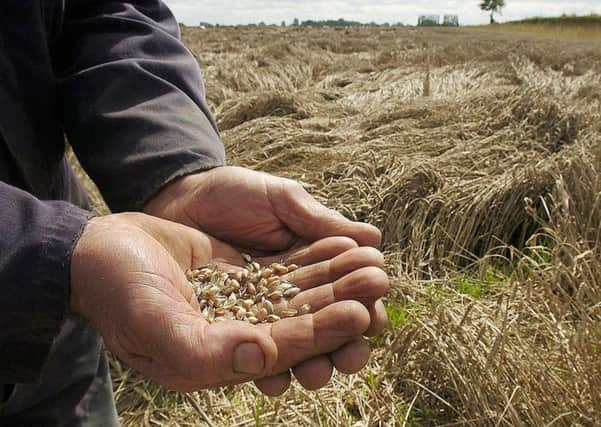Brexit is chance to reform support for farmers - report


Britain has a “strong hand” to play on agriculture in the Brexit talks, according to the paper from the Centre for Policy Studies.
The report’s author, former civil servant Sir Richard Packer, argues negative views of the Common Agricultural Policy “contributed significantly” to the sentiment which fuelled the Brexit vote.
Advertisement
Hide AdAdvertisement
Hide AdWriting in the report, Sir Richard says: “Though the criticisms of it are in some respects overstated, the CAP is ill-suited to UK circumstances and the fact that its rules will cease to apply here is a good thing.
“In particular, the much larger agricultural sectors in many other EU member states make it very costly for the UK because of the EU common financing rules.”
Sir Richard, who served at the former Ministry of Agriculture Fisheries and Food and Brussels, recommends agricultural policy after Brexit should be focused on minimising bureaucracy, providing affordable food for consumers and protecting landscapes and biodiversity.
He argues leaving the European Union will give Britain the opportunity to establish its own rules in areas such as genetically modified foods.
Advertisement
Hide AdAdvertisement
Hide AdBut he also has a warning over the potential impact on UK agriculture from future trade deals once Britain leaves the EU.
Sir Richard writes: “What can be predicted with some confidence is that many of the countries with which deals might be done e.g. Australia, New Zealand, US, Canada, Brazil, will seek extensive agricultural concessions in any deal; and are unlikely to be satisfied without some significant move on this front.
“This could have significant long-term implications for UK agriculture. Some agricultural concessions, notably those for tropical products, might have relatively little effect.
“But significant concessions for the main UK products such as beef, lamb, and dairy products have the potential to drive down UK prices considerably.
Advertisement
Hide AdAdvertisement
Hide Ad“If so farmers could demand what they may describe as compensation. Even if the UK government were disposed to meet such claims, which currently seems unlikely, WTO rules would restrict what could be done.”